What began as a lighthearted comedy about a boy’s journey to fulfillment quickly evolved into a thought-provoking narrative that explored the illusion of perfection and the interplay of fate and free will.
BU On Broadway, Boston University’s premier musical theater group, performed “Pippin” at the Tsai Performance Center from Nov. 7 to 9.
As the lights dimmed and whimsical instrumentals echoed, the production opened with an appearance from the Leading Player, played by graduate student Tia Austin. The character, who symbolizes an orchestrator and a guide, invited the audience into a magical world with the song “Magic To Do” before introducing us to the story’s protagonist.
Throughout the musical, viewers followed the titular young prince named Pippin, played by junior Joey Russoniello. Pippin just graduated from college and is eager to find his place in the world, and Russoniello’s enthralling performance highlighted Pippin’s optimism and naivety throughout Act 1.
Pippin explored various paths that each represent a different part of his journey, from trying his hand at warfare to entering the world of politics by overthrowing his father, King Charlemagne.
Pippin has a strained relationship with his father, played by senior Kai Farr. His Farr’s exaggerated bravado, comedic timing and over-the-top performance of an uncaring father who prioritizes power over his relationship with his son shows the real-world emotional struggles in many father-child relationships.
Pippin’s relationship with his stepmother was also strained and antagonistic, as she continuously plotted against him.
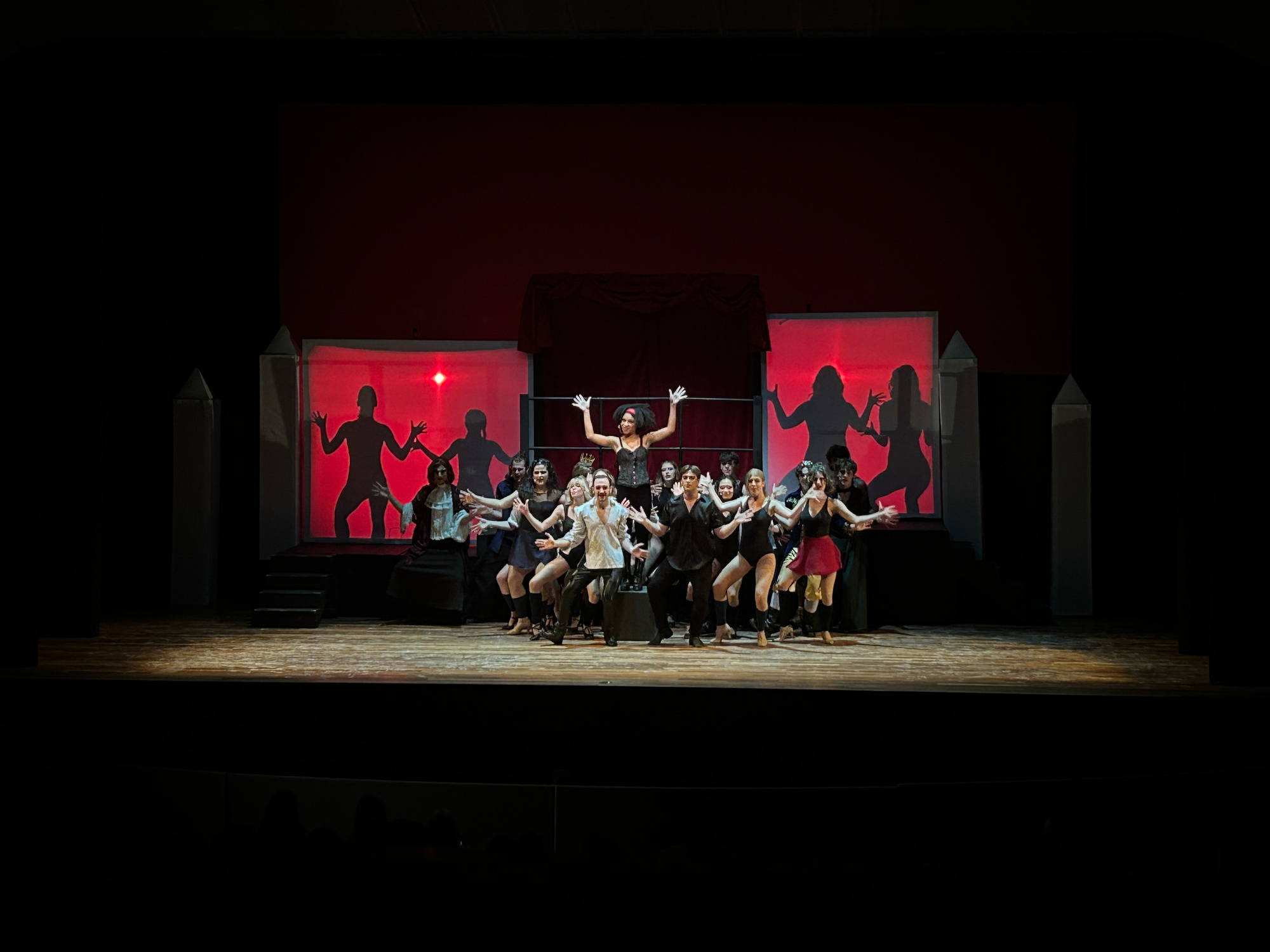
Senior Natalie Hawkins’ portrayal of Fastrada, Pippin’s scheming stepmother, was both charming and cunning as she remained dedicated to getting her arrogant son, Lewis, onto the throne. Hawkins brought a mix of glamor and deviousness to the role, making Fastrada a captivating character and adding a layer of intrigue and manipulation to the storyline.
Throughout these scenes, the Leading Player was ever-present with charisma and subtle manipulations, keeping the audience engaged and directing Pippin on his path. Austin’s portrayal was both captivating and riveting, as she guided Pippin and the audience through the highs and lows of his journey.
This all came to a head at the turning point of the musical, when we meet Catherine and her young son Theo, played by junior Emily Monaghan and sophomore Lauren De Geus, respectively.
Through his interactions with Catherine, whom he eventually falls in love with, Pippin sees the beauty and fulfillment in ordinary life. This causes him to break away from the Players’ production during the finale as he chooses his own destiny.
These tender scenes with Catherine and Theo provided a stark contrast to Pippin’s earlier, extravagant escapades, highlighting the musical’s deeper themes of the reality of finding contentment through meaningful relationships and the unfulfilling pursuits of extraordinary achievements.
Overall, the ensemble was filled with talented and engaging actors who performed spirited choreography and brought energy to every scene. They effectively portrayed Pippin’s journey while also maintaining a balance between humor and depth, showcasing the duality of seeking greatness and also finding contentment in ordinary life.
I found myself rooting for Pippin to return to his simple farm life with Catherine and Theo over the overproduced spectacle the Players crafted for him.
I left the show not only thinking about the fulfillment that can be found in simplicity, but also how common it can be to neglect meaningful relationships and the joys in life in exchange for glamorous aspirations and glory.
The ending of the production added a powerful touch, with the Leading Player calling out for volunteers from the audience to take Pippin’s place in the grand finale — only to abruptly shut down the show.
However, in a poignant twist at the very end, Catherine’s son Theo takes the spotlight in Pippin’s place, hinting at the cyclical nature of the search for purpose and the draw towards the perfection of an extraordinary life.
BUOB’s “Pippin” brilliantly demonstrated the nuances of the human condition and explored themes that encourage deep reflection on our own lives. It showed how there is power not only in grand achievements, but also in the simplicity of contentment.

























































































































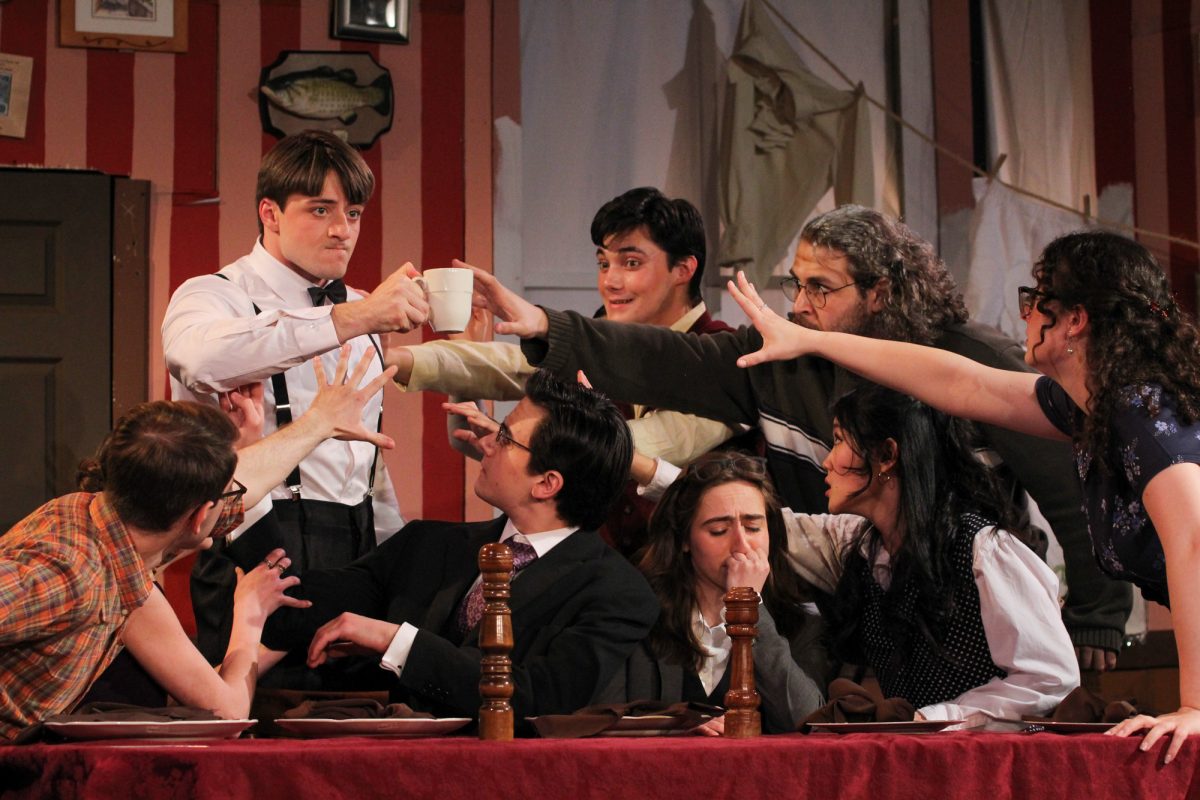
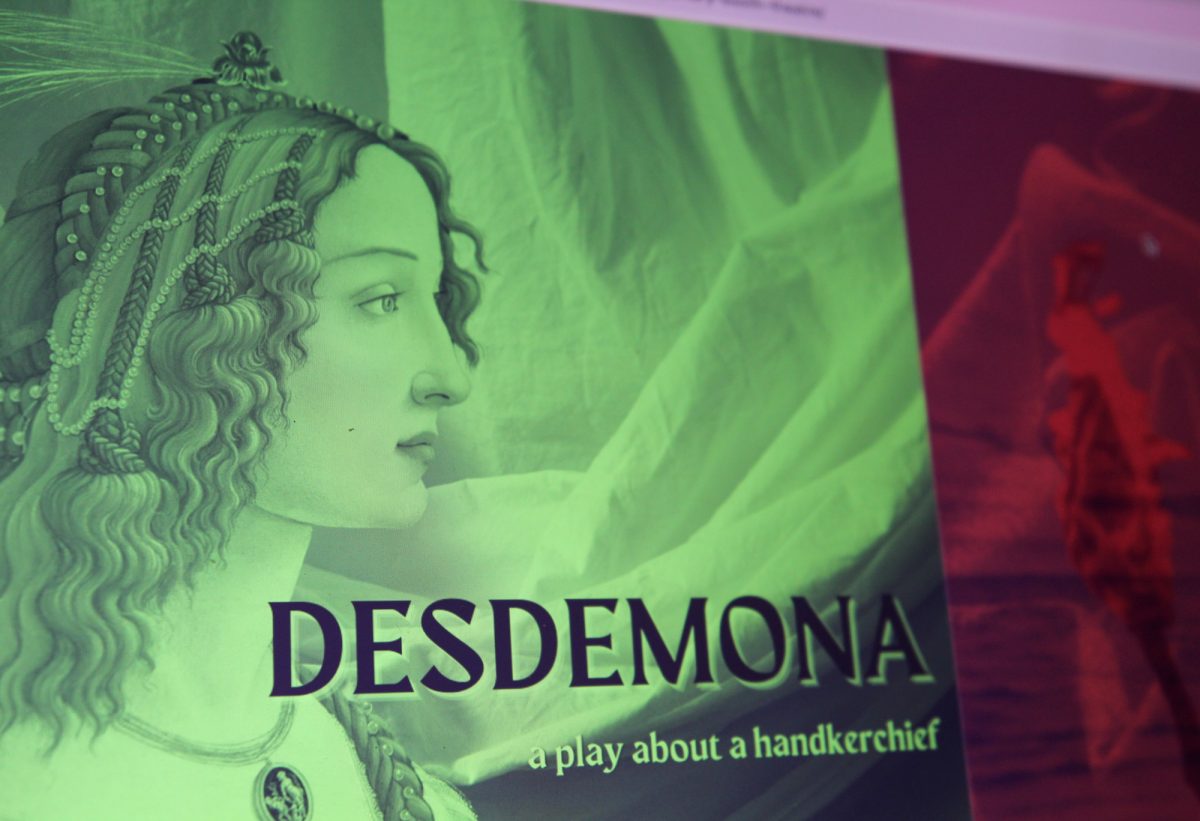

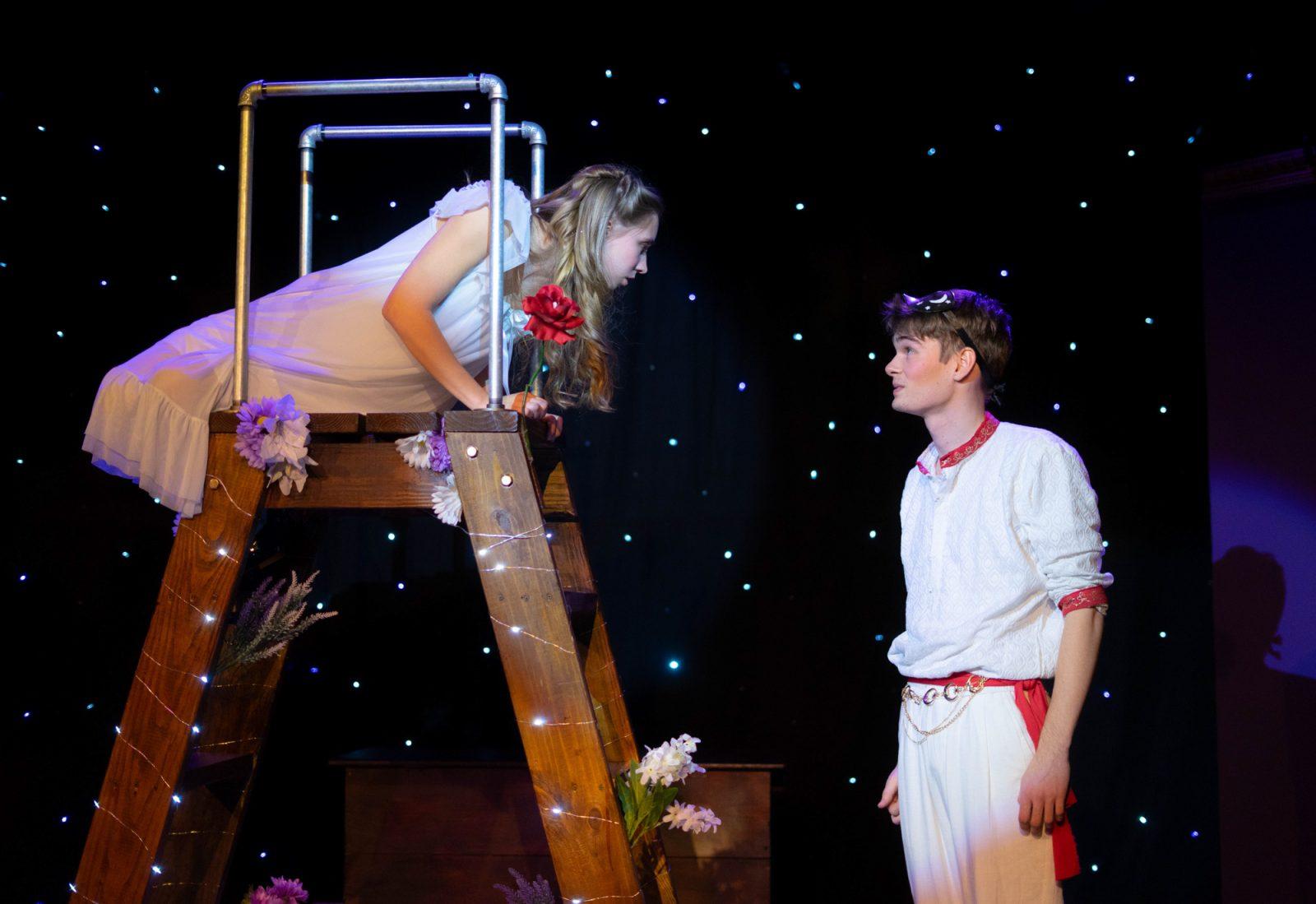
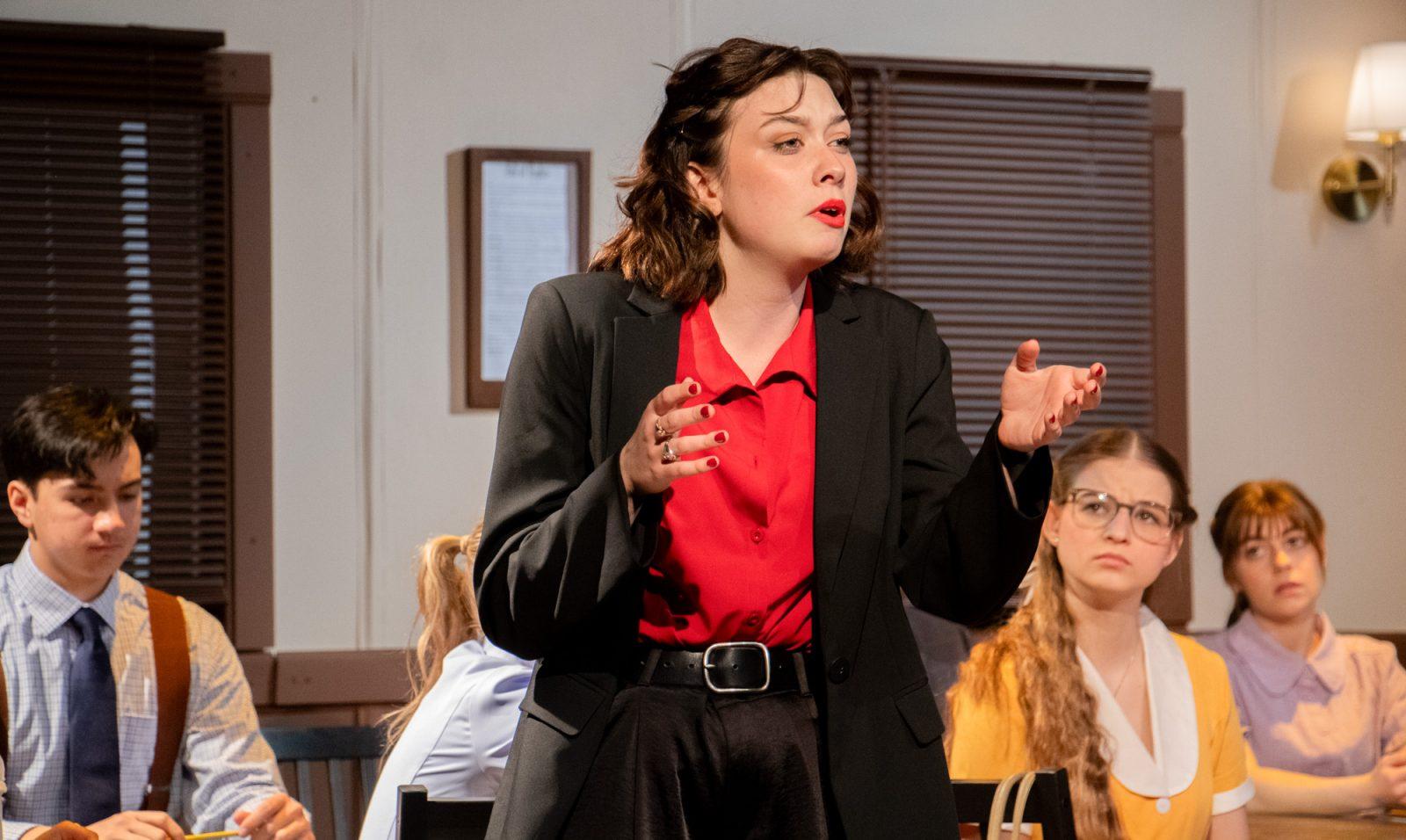

Olivia • Nov 17, 2024 at 3:22 pm
I would’ve loved to hear more about the technical aspects of the show!